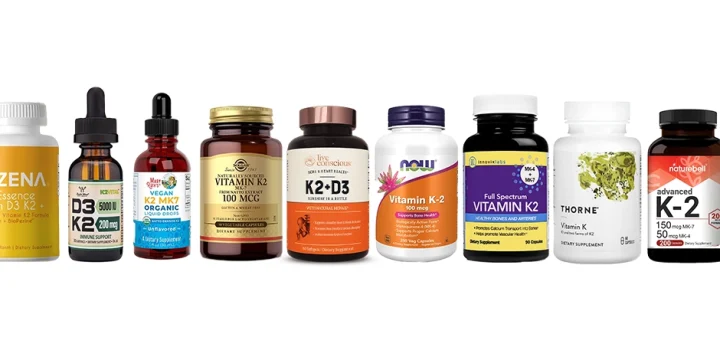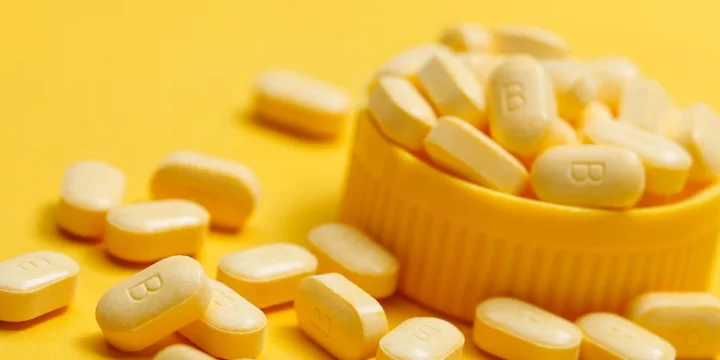As a medical professional specializing in nutrition and health, I find the interplay between vitamin D and testosterone particularly intriguing. Vitamin D is essential for maintaining strong bones, while testosterone plays a key role in masculine characteristics.
Recent advancements in health and biosciences indicate that these two biomarkers are not only vital for their well-known roles but also interact in various ways within the body, influencing each other's levels.
This emerging research has piqued my interest, prompting a deeper exploration of the subject.
In the following discussion, I will share insights into why maintaining optimal levels of vitamin D and testosterone is crucial for overall health, supported by recent studies highlighting their interdependent relationship.
Quick Summary
- Vitamin D supplementation may increase total testosterone levels in both men and women, especially in those with a deficiency.
- Symptoms like fatigue, bone pain, fertility issues, and muscle loss can indicate low vitamin D levels, which may also impact testosterone.
- Overweight men taking vitamin D supplements for a year saw a significant increase in testosterone levels compared to a placebo group.
- In my experience, balancing vitamin D through diet, supplements, and sunlight exposure is a practical approach to potentially enhancing testosterone levels.
Does Vitamin D Increase Testosterone?
Yes, it may increase the total testosterone levels in the body. This applies to both females and males.
As per a study from the National Institute of Health (NIH), in males, the reproductive duct is a target area for vitamin D [1].
A recent clinical endocrinology study by the NIH has indicated that men with a vitamin D deficiency may suffer from low testosterone levels [2].
A study published in the National Library of Medicine found that overweight men who took vitamin D supplements for a year had a significant increase in testosterone levels compared to a placebo group [3].
What Is the Relationship Between Vitamin D levels and Testosterone levels?

Low vitamin D levels and low testosterone levels may pose reduced bone health, low libido, or fertility problems.
Vitamin D is essential for the growth and function of your bones, muscles, and nerves.
Randomized controlled trial studies show that this vitamin also affects how the testes operate in men in relation to producing testosterone.
Vitamin D's Role in Testosterone Production and Deficiency
In my experience, I've noticed that vitamin D deficiency often aligns with low testosterone and higher SHBG levels.
From working with clients, I've seen that while vitamin D supplements can give a nudge to testosterone in milder cases, they don't quite stack up against testosterone therapy for more severe deficiencies.
This finding was spotlighted in The Journal of Clinical Endocrinology and Metabolism [4].
According to a study from the National Library of Medicine, after absorption, your liver turns vitamin D into 25(OH)D, the form checked in blood tests [5].
This 25(OH)D gets around, reaching various organs and tissues. Recent experiments show it also plays a role in the male reproductive system.
Understanding Vitamin D Levels and Their Health Implications
According to hormone and metabolic research on vitamin D and testosterone, here are some values that dictate the amounts of vitamin D in the blood [6].
- Insufficient: between 30-50 nmol/l
- Sufficient: between 50-125 nmol/l
- High: higher than 125 nmol/l
NOTE: Only specialized blood tests for this vitamin can determine whether you are deficient.
According to researchers from the National Institute of Health (NIH), a blood level of 70nmol/l is beneficial for preventing bone fractures, maintaining energy levels and sex drive [7].
4 Signs of Low Vitamin D

1. Fatigue and Tiredness
Feeling tired and exhausted may be brought on by many factors. However, vitamin D deficiency is one of them.
While many might ignore it, it is a significant cause of fatigue for both adults and children.
2. Bone Pain
Calcium is good for bone health, and this vitamin impacts calcium absorption. Good levels of it means you are more likely to have good bone strength.
Research BY NIH suggests lower back and bone pain are associated with low vitamin D intake [8].
3. Fertility

Men low in vitamin D often have low testosterone too.
NIH links reduced T-levels to erectile dysfunction, low libido, and body hair loss [9].
Vitamin D boosts testicular free testosterone and lowers luteinizing hormone.
No T-level rise with vitamin D supplements? It's time to see a doctor. For women, vitamin D boosts ovulation. NIH research shows it heightens follicle-stimulating hormone sensitivity for fetal development and ensures enough fetal testosterone [10].
4. Muscle Loss
Causes of muscle loss and pain are usually hard to pinpoint. According to a study by NIH, vitamin D is responsible for boosting T levels in the body, and low T levels lead to reduced muscle strength and growth [11].
When you encounter difficulties building muscles or working out, it is high time you check your vitamin D and total testosterone concentrations.
What To Do If You Have Low Vitamin D?

Vitamin D affects testosterone regulation. Supplements can boost testosterone in those who are low in vitamin D. It's key for healthy sex hormones.
Low vitamin D can lead to fatigue, back pain, hair loss, slow healing, depression, and low testosterone. Worried about your levels? It's best to chat with a doctor.
I always recommend the following options to my clients who are deficient:
Vitamin D Supplementation
Insufficiency of this vitamin is usually treated with vitamin D supplements. These are available over the counter, however, dosage advice should be confirmed by a doctor.
A doctor may write you a prescription for a severe deficiency, which comes in significantly higher doses of up to 50,000 IU or injections.
Vitamin D-rich diet
You can increase your cholesterol and free testosterone levels by consuming foods like:
- Fatty fish
- Fortified cereals
- Egg yolk
- Yogurt
- Beef liver
- Cod liver oil
- Mushrooms
Sunlight Exposure
The sun offers many benefits, including boosting this vitamin in the body.
When exposed to sunlight, your body produces vitamin D. The sun has UV-B radiation that is vital for vitamin synthesis.
A variety of circumstances determine the quantity of vitamin D produced by your skin:
- Melanin content of your skin
- Time of day
- Where you live
- The season
NOTE: Sunlight is the main source of vitamin D. To boost low testosterone levels, spend at least 10 to 20 minutes in the sun every day.
However, those further away from the equator should spend more time under the sun.
“Sunlight is more powerful than any drug; it is safe, effective, and available free of charge. If it could be patented, it would be hyped as the greatest medical breakthrough in history. It's that good.“
- Mike Adams, Natural Health Researcher & Author
3 Possible Side Effects of Too Much Vitamin D

Over-supplementation of vitamin D can lead to toxicity, with symptoms like nausea and weakness, as warned by the Centers for Disease Control and Prevention (CDC), without guaranteed benefits in testosterone increase [12].
Our dietician also advised that too much of this vitamin might cause an increased risk to your health.
Here are the possible side effects of having too much vitamin D.
Increased Calcium Levels
Too much vitamin D supplementation can lead to more calcium absorption in the body.
From this, one is more likely to experience excessive thirst and increased urination, among other health issues.
Kidney Problems
Increased calcium deposits in the bloodstream might lead to the formation of kidney stones. According to the NIH, this can be vital as it might lead to kidney failure and impair the body’s normal functioning [13].
If you suspect an overdose of vitamin D supplements, your doctor might recommend intravenous fluids and other medications.
You should also stop taking these supplements immediately.
Getting Infections Often
The toxicity of this vitamin is primarily caused by supplements. According to the Mayo Clinic, with frequent use, there will be more vitamin D3 deposits in the bloodstream, and might cause nausea, vomiting, frequent urination, and, lastly, make the body weak [14].
Lastly, more buildup of the vitamin may weaken the body’s immune system, leading to frequent infections.
NOTE: You cannot suffer from vitamin D toxicity when under the sun. The National Institute of Health notes that the body only takes as much vitamin as it needs from the sun [15].
- Fatty fish
- Fortified cereals
- Egg yolk
- Yogurt
- Beef liver
- Cod liver oil
- Mushrooms
FAQs
Is Vitamin D a Steroid?
Yes, the vitamin D that your body produces is technically a steroid due to its chemical structure and ability to bind to receptors in the body, influencing processes like bone density and immune responses.
Can Vitamin Supplements Cause a Positive Drug Test?
Yes, vitamin supplements and excessive intake can cause a false positive drug test. However, it’s more common to happen with vitamins B and C, with not much evidence that vitamin D could cause the same problem.
References:
- https://rep.bioscientifica.com/view/journals/rep/144/2/135.xml
- https://pubmed.ncbi.nlm.nih.gov/31953167/
- https://pubmed.ncbi.nlm.nih.gov/21154195/
- https://academic.oup.com/jcem/article/104/8/3148/5393291?searchresult=1
- https://www.ncbi.nlm.nih.gov/books/NBK278935/
- https://academic.oup.com/jcem/article/102/11/4292/4096785
- https://www.ncbi.nlm.nih.gov/pmc/articles/PMC4463009/
- https://www.ncbi.nlm.nih.gov/pmc/articles/PMC4393394/
- https://www.ncbi.nlm.nih.gov/pmc/articles/PMC1476110/
- https://www.ncbi.nlm.nih.gov/pmc/articles/PMC4488777/
- https://www.ncbi.nlm.nih.gov/pmc/articles/PMC3513873/
- https://www.mayoclinic.org/healthy-lifestyle/nutrition-and-healthy-eating/expert-answers/vitamin-d-toxicity/faq-20058108
- https://pubmed.ncbi.nlm.nih.gov/26035535/
- https://www.mayoclinic.org/healthy-lifestyle/nutrition-and-healthy-eating/expert-answers/vitamin-d-toxicity/faq-20058108
- https://www.ncbi.nlm.nih.gov/pmc/articles/PMC3356951/
About The Author
You May Also Like






